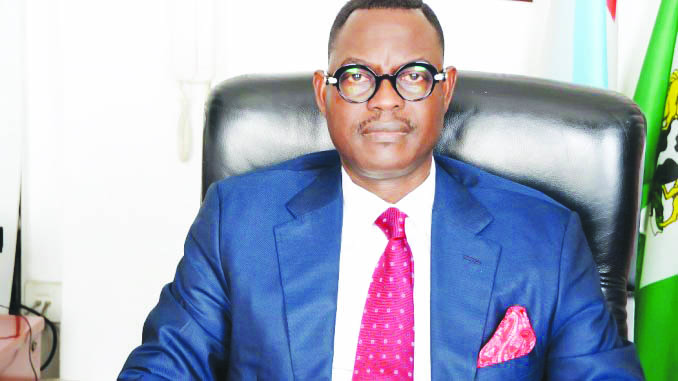By Samson Echenim
Maritime sector investors and experts who gathered at the 4th Taiwo Afolabi Annual Maritime (TAAM) Conference have called on the Nigerian government to provide more policy creation and enforcement to drive the sector, which they insist could create five million jobs and help the country earn N7 trillion annually if properly harnessed.
With the theme “Innovations and Practical Reforms Towards Sustainable Growth in the Maritime Sector,” Kunle Folarin, chairman Port Consultative Council, in a speech said industry operators and stakeholders must continue to set agenda for the government on the development of the industry.
He said, “The new economic agenda in the maritime sector and port industry raised concerns on port reforms and local participation policies. It also calls for foreign direct investment policies, the transformation of the ports from a whole public monopoly into a landlord model organisation with a master plan that will also include green field development. We must set the agenda.
“From the first conference to the immediate past one and that of today, we have succeeded in creating a platform for maritime Nigeria to grow. Today’s topic which focuses on innovations and practical reforms towards a sustainable growth in the maritime sector opens the discussions and solutions to several issues that have bedevilled the sector for decades.”
Taiwo Afolabi, group executive vice chairman, Sifax Group and sponsor of the conference said the nation’s maritime industry had over time, seen various policies such as the port concession reforms, truck standardization policies, caboatge law, maritime safety laws and several others with the sole aim of eliciting growth in the sector. He noted that while some of these policies had catapulted the industry to its next level growth, more policies and reforms and most importantly, a strong implementation mechanism were still being desired.
He said, “The port alone does not represent the maritime industry. For the Nigerian maritime sector to witness exponential growth, its drivers must aim at sustainability of policies that drive the industry. From the perspective of a port operator, I wish to submit that the rail modernization policy of the federal government which is aimed at effective use of rail to move cargoes from the ports to the inland dry ports and container freight stations is a great development and must be seen to the end.
“This is what can enhance expected growth in the Nigerian maritime industry. And for our sector to grow, strict security measures must be put in place both offshore and onshore. There have been various instances of piracy, attacks on ships and various terminals by men of the underworld and a host of others. This has led many shipping lines to introduce war risk surcharges on consignments heading to Nigeria. I will therefore appeal to the federal government and its relevant agencies to further fortify the nation’s coastal areas and maritime boundaries against maritime crimes.”
During the plenary session, Vicky Hastruup, chairman of Seaport Terminal Operators Association of Nigeria (STOAN) said the federal government needed to protect the local oil firms and indigenous shipping lines by enforcing policies and laws in favour of cabotage trading, to ensure that there are jobs for the indigenous shipping lines.
“Nigeria’s policies do not encourage such investments. We have a lot of foreign ships still doing cabotage trading and they are getting support of the IOCs. The federal government needs to enforce the enabling policies to propel Nigerian businesses in the maritime sector,” she said.
Adetola Bucknor-Taiwo, a partner at Paul Usoro & Company, said the Nigerian cabotage regime had been implemented more of a waiver regime which favours foreign ship-owners who take advantage of waivers that are available to trade on Nigerian waters.
“Once these foreign ship-owners have evidence of payment of waivers for those categories, they are allowed to trade. If you want to encourage indigenous shipping, you must engage indigenous ship-owners to know what their challenges are and how they can be helped,” she noted.
The conference organised by the UNILAG Maritime Forum, featured the University of Lagos and the Lagos State University in a debate on “Achieving the blue economy dream in Nigerian Maritime Sector,” during which the students from both institutions provided a link of knowledge between maritime education and maritime practice, as well as an inroad into solving the multiple challenges in the maritime sector.









